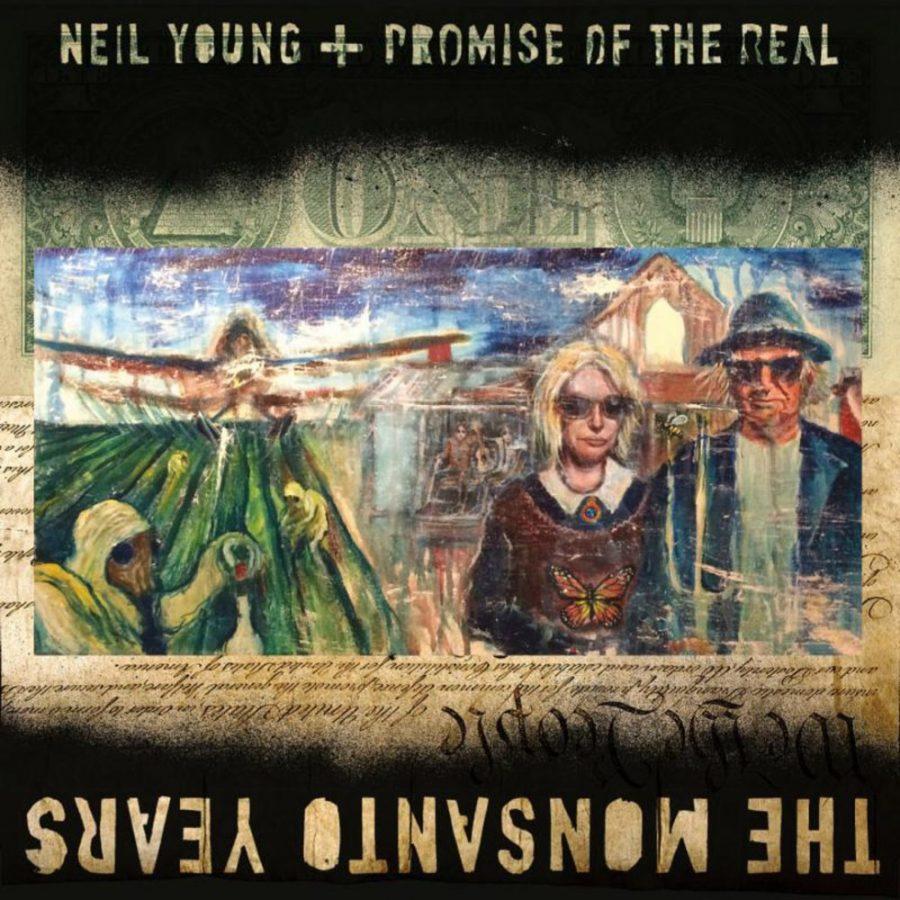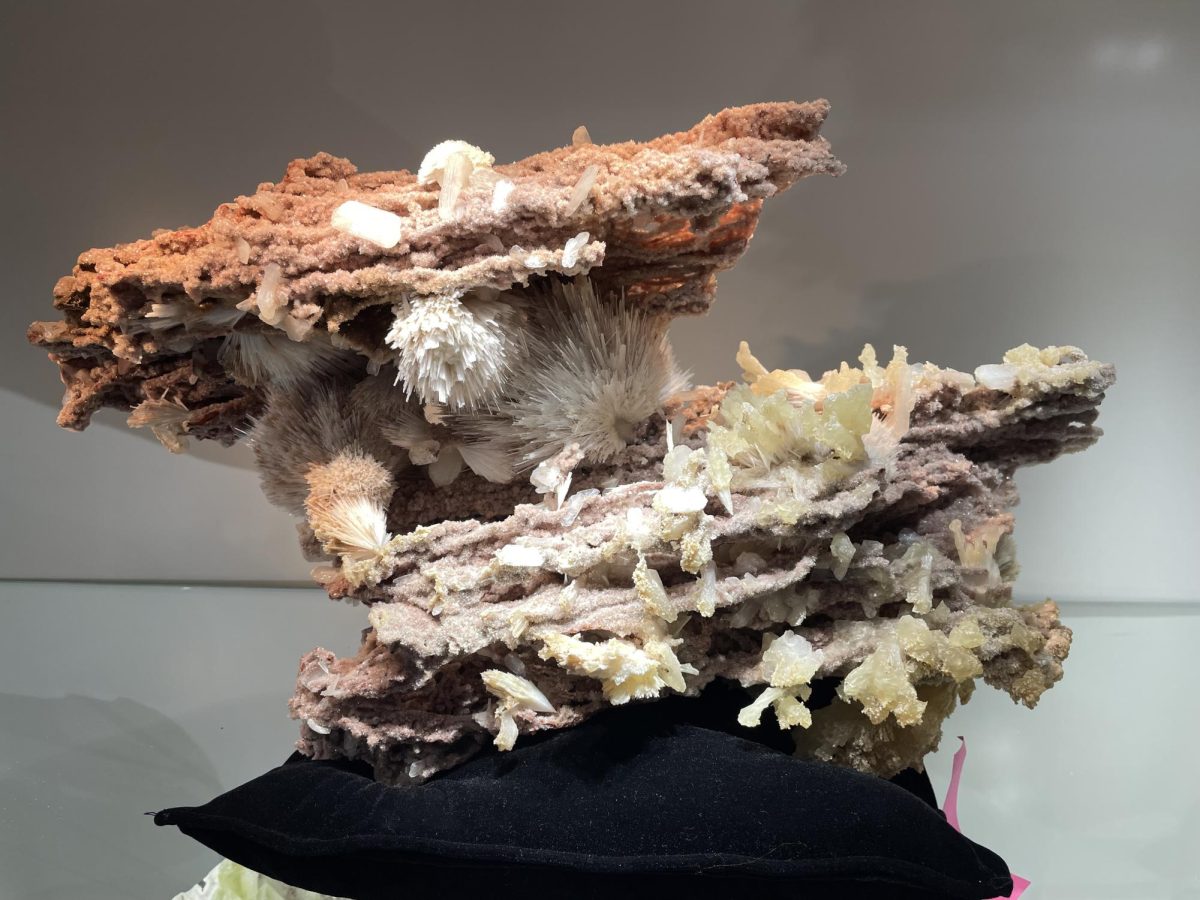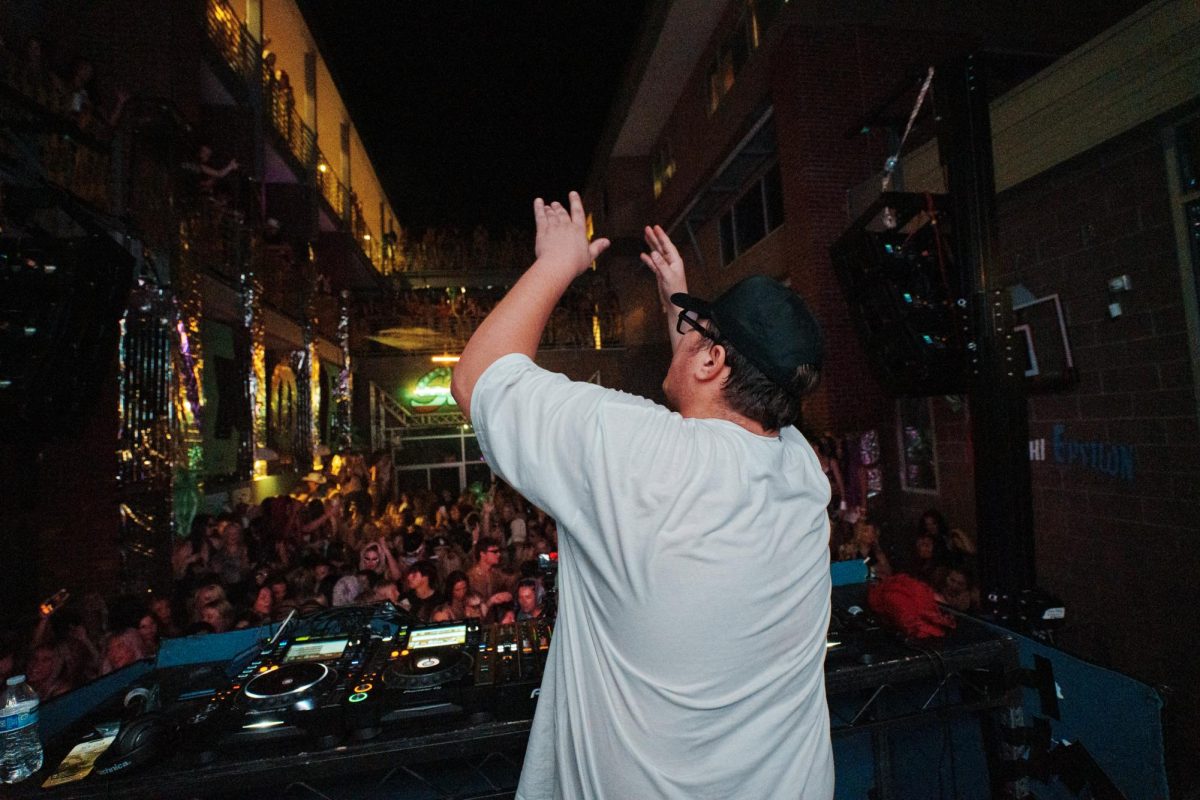Neil Young has been utilizing his musical platform as a political call to action for over 55 years. It comes as no surprise that once the 69-year-old singer-songwriter heard about GMOs, he released an album of nine songs highlighting the problems with Monsanto, Starbucks, Walmart, Safeway, GMOs and corporations in general.
On The Monsanto Years, Young paired up with Promise of the Real, a “cowboy hippie surf rock” band led by Willie Nelson’s son Lukas Nelson. The album also features Willie Nelson’s son Micah Nelson as an honorary member. The pairing isn’t as successful as Young’s pairing with Crazy Horse, but it isn’t a complete loss either.
The album starts out with “A New Day for Love” and “Wolf Moon,” two songs you’d expect to hear from Young and a relative of Willie Nelson—just some chill, old-school rock tunes to listen to in your smoke circle.
The album takes a turn on its fourth song, “Big Box,” and the lyrics become consistent with an angry freshman political science major commenting on a YouTube video.
While this would certainly cause the lonely freshman to lose a few Facebook friends, time has shown that this kind of angry political rant works in Young’s favor. Lyrics like “Corporations have feelings, corporations have soul/ That’s why they’re like people just harder to control,” are evocative of Young’s past songs and bureaucratic antagonism. His best albums come from pure, unadulterated political anger-—where Young’s lyrics succeed the most. He didn’t overthink it; he heard about Monsanto, he got pissed and he recorded a pretty good album as a result.
The rest of the album sticks primarily with the same theme as “Big Box” and begs its listeners to shop local. It calls out Safeway, Starbucks and Walmart for their use and sale of GMO products and the consequential death of natural food and family farmers.
The Monsanto Years was primarily recorded live and the instrumentals help to support the overall message and tone of the album. The rugged and tenuous guitar of Lukas Nelson and Micah Nelson makes a solid connection with the rugged lyrics and tenuous vocals of Young. The combination of Young’s tendency toward softer, classic rock and Promise of the Real adding in a flare of their own sub-genre of rock is reminiscent of Vietnam-era protest songs.
There is a little bit of disconnect between the musicians, but that rough-and-tough sound is kind of the point of the album. Slightly out of balance and raw is a defining aspect of all that is natural: what this album is trying to depict.
The Monsanto Years won’t go down in history among Young’s best albums with Harvest or After The Gold Rush, but it doesn’t stray from Young’s commitment to political rock, and certainly isn’t anything to be ashamed of.









